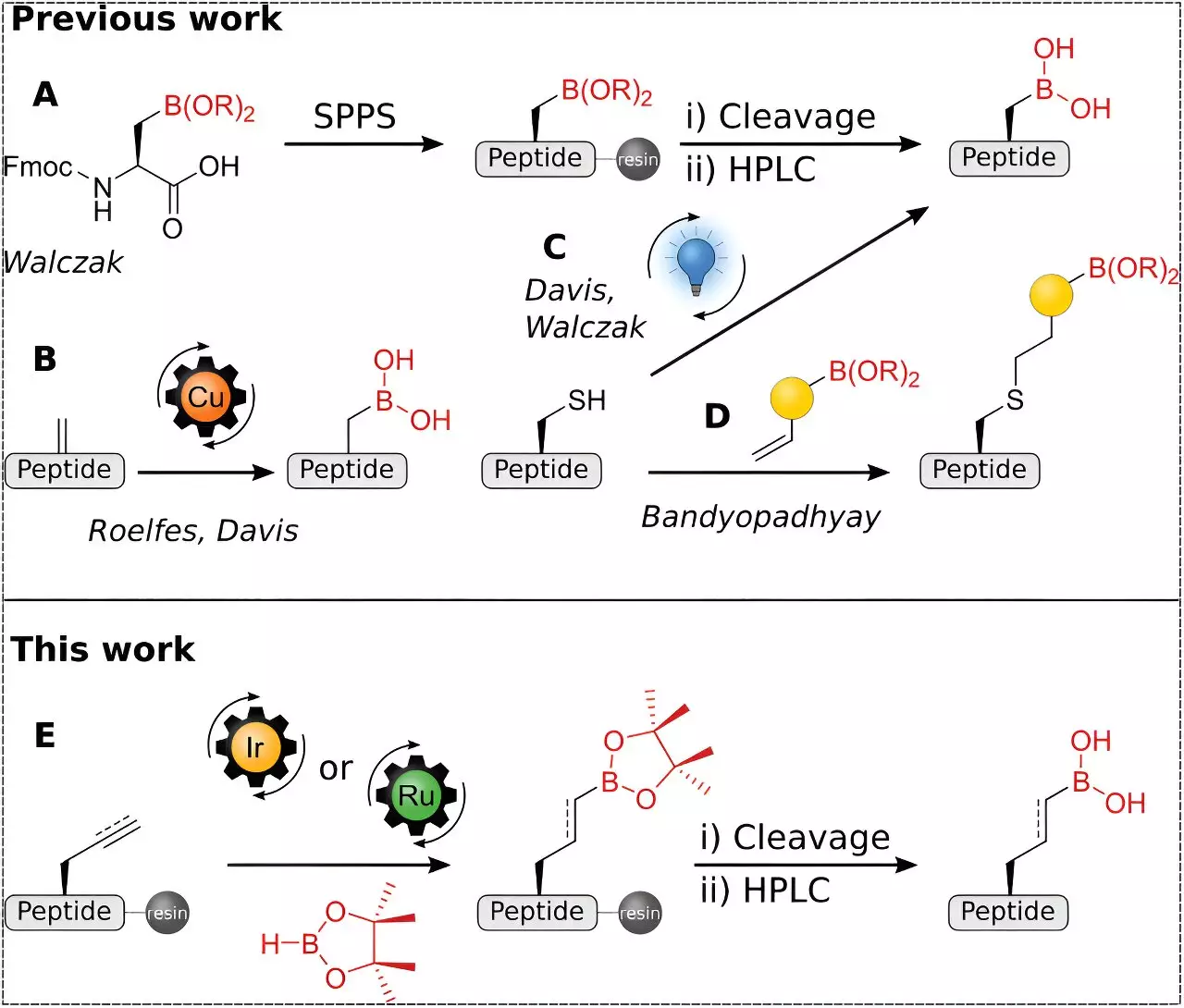Recent advances in the field of synthetic immunology have unlocked promising pathways for the development of new therapeutic agents. Researchers at Heidelberg University, specifically from the Institute of Organic Chemistry and the Institute of Pharmacy and Molecular Biotechnology, have pioneered a novel chemical process that enables the rapid and efficient production of modified peptides utilizing boronic acids. This method marks a significant progression in peptide synthesis, a field traditionally characterized by complexity and limited efficiency.
Peptides are essential biomolecules, composed of amino acids linked via peptide bonds. Found universally in living organisms, they are vital for numerous cellular processes, particularly in mediating immune responses. Their specific sequences and structures can serve as signals to the immune system, distinguishing between self and non-self entities, thus triggering necessary immune reactions. This new advancement allows for a diverse array of biologically active peptide boronic acids to be synthesized, paving the way for groundbreaking research in immunotherapy and personalized medicine.
The integration of boronic acids into peptide design introduces a unique interaction profile with immune cells, a feature that researchers believe remains largely untapped. As explained by Marius Werner, a doctoral student involved in the study, the ability to modify peptides with boronic acids presents exciting opportunities for therapeutic and prophylactic applications in immunizations. By equipping peptides with boronic acids through hydroboration of resin-bound alkenes and alkynes, scientists have created novel compounds with extensive potential applications in the realm of immunotherapy.
Dr. Franziska Thomas, one of the lead researchers, articulates that this innovative approach not only simplifies the incorporation of further chemical modifications but also facilitates the exploration of numerous variations of peptides. The versatility afforded by these modified peptides may empower researchers to fine-tune immune responses, potentially enabling tailored treatments for diseases such as cancer – where the immune system can be harnessed to destroy tumor cells by recognizing them as foreign.
Another intriguing aspect of this research lies in the potential for targeted active substance release within the body. The boronic acid functional group serves as an effective “anchor,” allowing peptides to attach to engineered nanoparticles that act as delivery vehicles. Such particles can be customized to localize in specific organs or target particular cells, predominantly within the immune system. This method of utilizing nanoparticles can significantly enhance the precision of peptide delivery, which could transform therapeutic efficacy.
The targeted design of these nanoparticles may hold implications for various treatment modalities, including localized therapies that minimize systemic side effects. By developing nanoparticles that release their cargo in a controlled manner, researchers can ensure the right amount of the therapeutic agent is delivered at the right time and in the right location.
Despite the promising nature of these findings, the journey toward clinical applications is complex and multifaceted. Prof. Christian Klein emphasizes that while the initial results are encouraging, extensive research and development are needed to fully understand the potential of peptide boronic acids in therapeutic contexts. Their applications may extend beyond immunotherapy to include innovative use cases like small, biodegradable implants that gradually release therapeutic agents directly at the site of action.
The implications of this research are far-reaching, indicating a significant step forward in utilizing synthetic peptides for medical applications. The ongoing exploration of boronic acid-modified peptides could revolutionize how we approach treatments for various diseases, from cancer to chronic infections, by leveraging the body’s own immune responses in novel and effective ways. As scientists continue to dissect the intricate roles these newly synthesized peptides may play, the horizon for therapeutic interventions looks brighter than ever.

